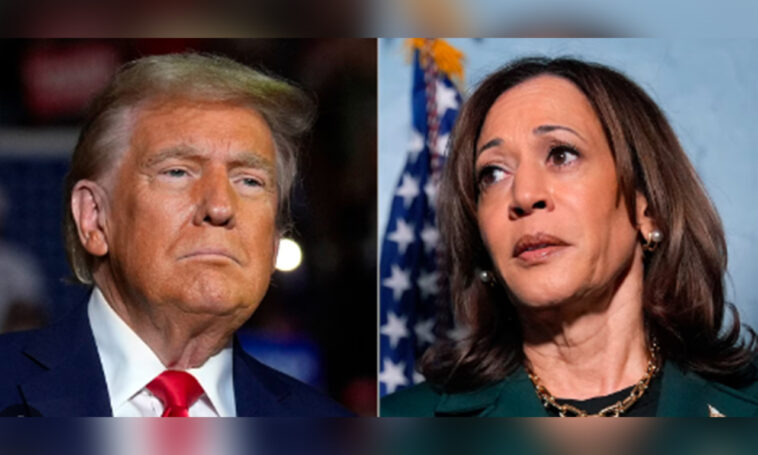In a recent interview with NBC News, Vice President Kamala Harris addressed the controversial topic of whether she would consider pardoning former President Donald Trump if she wins the upcoming presidential election. As the first former president to be criminally convicted, Trump’s legal troubles have sparked intense debate. Harris avoided giving a direct answer, focusing instead on her campaign priorities. She emphasized the importance of her election as a means to unify the country, highlighting her stance on various issues, including abortion access. With Election Day approaching, Harris’s comments reflect the complex political landscape she navigates as she campaigns for the presidency.
Vice President Kamala Harris recently made headlines during an interview with NBC News when she was asked if she would consider pardoning former President Donald Trump if elected president. This question arises as Trump faces multiple criminal charges, including a conviction related to falsifying business records. Harris’s response to the question revealed her reluctance to engage in hypothetical discussions about the future.
In her interview with Hallie Jackson, Harris emphasized that she is focused on the immediate future, specifically the next 14 days leading up to the election.
“I’m not going to get into those hypotheticals,” she stated.
This avoidance suggests that the topic of pardoning Trump may be too politically sensitive for her campaign at this time. Instead, she reinforced her commitment to her electoral goals, indicating that her primary concern is winning the presidency.
Jackson followed up by questioning whether a pardon could serve as a unifying gesture for the country. The idea that a pardon could help bridge political divides has been debated among political analysts. However, Harris redirected the conversation back to her candidacy, saying, “Let me tell you what’s going to help us move on. If I get elected president of the United States.” This response signals her belief that her leadership could be the key to national unity, rather than the controversial act of pardoning a former president.
Donald Trump was convicted on May 30 for 34 felony counts linked to falsifying business records concerning a hush money payment to Stormy Daniels. His sentencing was initially set for September 18 but has now been postponed to November 26, shortly after the presidential election on November 5. Trump is also facing other legal challenges, including charges related to efforts to overturn the 2020 election results.
The former president has pleaded not guilty to all charges against him. His legal issues have become a focal point for many political discussions, especially as Election Day approaches. If Trump were to win the election, he could potentially pardon himself for federal charges, although he would lack the authority to dismiss state-level charges against him.
Harris’s avoidance of the pardon question comes as she has frequently used Trump’s legal troubles as a campaign talking point. In a recent debate, she highlighted Trump’s convictions and ongoing legal battles as a critique against her opponents. This strategy indicates her intent to position herself as a candidate who stands firmly against the actions and behaviors that have led to Trump’s legal issues.
While the possibility of a pardon remains uncertain, it raises questions about the potential implications for the Republican Party and the broader political landscape. Pardoning Trump could be seen as a move toward reconciliation, but it could also alienate many voters who believe he should face consequences for his actions.
As the election approaches, Harris faces the challenge of balancing her campaign message with the complexities surrounding Trump’s legal situation. Her refusal to directly address the pardon issue may reflect a desire to maintain focus on her platform while avoiding polarizing topics that could derail her campaign.
Kamala Harris’s interview sheds light on the intricate dynamics of the upcoming presidential election. As she navigates the political landscape, her comments reflect a broader strategy to emphasize her vision for America while sidestepping potentially divisive issues. With Election Day just around the corner, the decisions made by both Harris and Trump will likely shape the future of American politics. The discussions surrounding pardons and accountability will remain crucial as voters assess their choices in the coming weeks.



